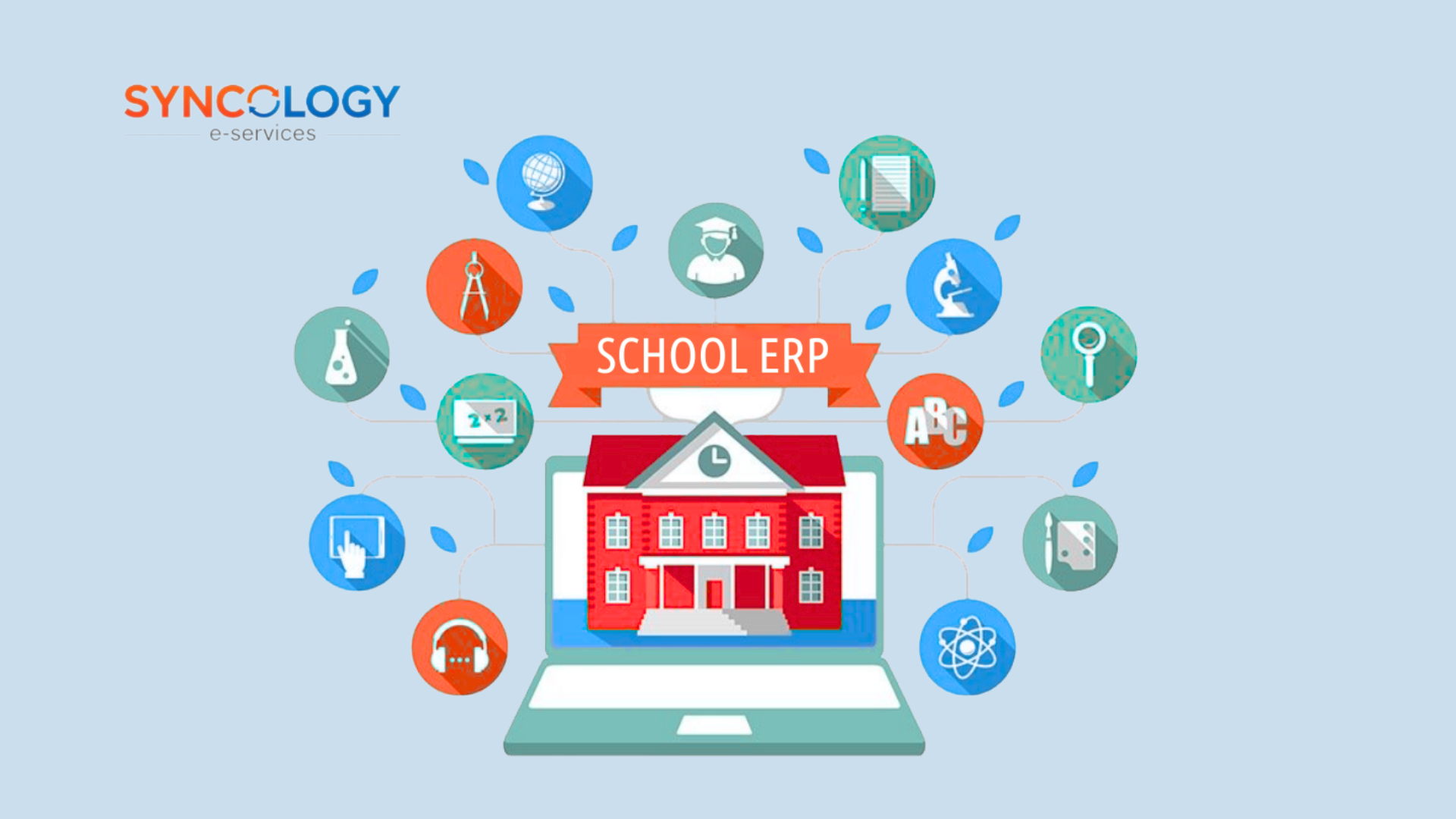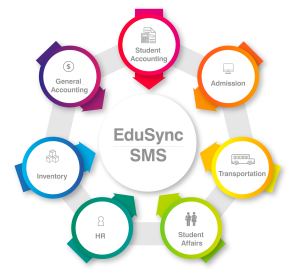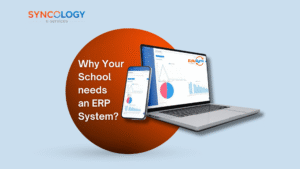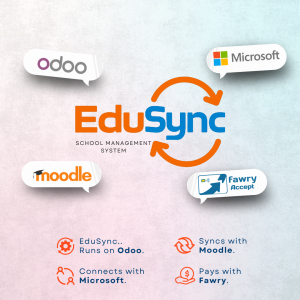
ERP Systems in Egypt: Local Solutions and Global Standards
ERP systems in Egypt became essential tools that help businesses, educational institutions, and schools maintain global standards while catering to local conditions. Choosing the right ERP system software makes the difference between struggling with manual work and operating with clarity, efficiency, and compliance.
What Is an ERP System?
An ERP system (Enterprise Resource Planning) is an integrated suite of software applications designed to centralize and manage all core functions of an organization.
You can read more about ERP systems from here: [What is an ERP system: How it works and Why schools need it]
In the Egyptian market, using an ERP system for institutions means tailoring that platform to fit legal, cultural, financial, and regulatory needs specific to the Egyptian market.
What Are the Top Types of ERP Systems in Egypt?
In Egypt, organizations choose among several ERP types depending on their size, sector, and growth plans:
- Cloud-based ERPs: hosted solutions that reduce the need for big local infrastructure, good for scalability, remote management, and modern institutions.
- On-premises ERPs: installed and managed locally. Still popular among large companies or institutions needing full control and data residency.
- Industry-specialized ERPs: ERPs built for particular sectors (education, manufacturing, retail, healthcare, etc.). In education, “school ERP” or “ERP for education” solutions often include student/admissions modules, virtual classrooms, LMS integration, fee management, etc.
- Hybrid ERPs: certain modules in the cloud, others hosted locally, or a combination to balance cost, performance, and compliance.

Top 5 ERP Components Needed in the Egyptian Market…
For ERP systems to succeed in Egypt – especially in schools or educational institutions – these components are especially important:
- Compliance & Finance Module: must support Egyptian tax laws, local currency, financial reporting according to local accounting standards, invoicing, and fee tracking.
- Student Information & Academic Records: modules for enrollment, student profiles, assessments, transcripts, gradebooks, virtual classrooms, and LMS integration.
- HR & Payroll Management: handling local labor laws, benefits, leave, salaries, social insurance contribution rules, etc.
- Communication: features for communication, notifications, portals, possibly via a mobile app, Arabic/English bilingual support.
- Reporting & Analytics: robust dashboards for principals, business owners, and decision-makers that compare branches, show KPIs (attendance, outcomes, financial health) in real time.
ERP Benefits for Egyptian Institutions :
Implementing a properly built ERP systems in Egypt brings many benefits:
- Efficiency & time savings: automates manual tasks (accounting, payroll, admissions), reduces paperwork, and frees staff to focus on strategic tasks.
- Data accuracy and consistency: avoids data duplication, ensures a single source of truth for financial and HR information.
- Scalability: as you open new branches or expand programs, ERP systems can grow without breaking workflows.
- Improved decision-making: with real-time dashboards and analytics, business owners can see financial leaks, under-performing areas, and act quickly.
- Better compliance & trust: Meets global standards, international accreditations, and legal requirements, creating trust among the audience, regulators, and potential partners.
- Cost reduction over time: initial investment is higher, but gains in reduced errors, less manual labor, and better resource allocation pay off in the mid-to-long term.
Is Excel sheet considered an ERP System?
Many small businesses or institutions start with Excel or spreadsheets for accounting, attendance, etc. But Excel is not an ERP system. Here’s why:
- Excel lacks real-time collaboration, version control, and concurrency of users across locations or branches.
- It’s difficult to enforce workflows, roles, permissions, and audit trails.
- Reporting with Excel becomes slow and error-prone as data scales.
- It does not integrate easily with other systems.
Excel can be a stopgap, but not a sustainable ERP software solution for institutions aiming for global standards and growth.
Successful Implementation with Global Standards
To ensure your ERP implementation not only works but meets global standards, follow best practices:
- Choose a vendor with a proven track record both locally and internationally.
- Ensure multilingual, multi-currency, localization (tax, legal) capability.
- Plan for data migration, backups, and security (GDPR-style privacy, role-based access).
- Include change management: train users well.
- Pilot in one institution or branch before full rollout.
- Monitor KPIs, get feedback, iterate.
Which Types of Institutions in Egypt Need ERP the Most?

ERP systems in Egypt tend to bring the greatest value in these contexts:
- Private K-12 schools and international schools manage multiple campuses.
- Universities & colleges with many departments and student management complexity.
- Vocational, technical, and STEM schools with labs, schedules, and resource reservations.
- Chains of private schools or school groups expanding branches.
- Education service providers (tutoring centers, language schools) that rely on scheduling, attendance, payment collection, teacher tracking.
Also, beyond education, manufacturing, retail, and healthcare use ERPs.
Why EduSync Is the #1 ERP Systems in Egypt with Global Standards ?

When you compare all these features, vendors, and market needs, EduSync ERP / EduSync SMS + LMS emerges as the top choice for several reasons:
- It offers complete modules that match Egypt’s core needs: student management, finance, HR, payroll, assessment & grade-book, LMS integration, transportation, and inventory in one centralized unified system.
- It supports local compliance (Arabic & English, local tax/accounting rules, financial reporting) while adopting global best practices (security, uptime, audit trails).
- Integrations built in: LMS + SMS + ERP + CRM + payment systems, so data flows seamlessly (no duplicate entry).
- Scalable cloud infrastructure designed to support multiple branches, growing student numbers, and virtual learning.
- Support, training, and change management baked in, EduSync helps schools transition and keeps evolving.
Conclusion…
ERP systems in Egypt are now foundational for any educational institution that wants to keep pace globally while serving local demands. A well-selected ERP system software helps business owners and administrators not only simplify operations but also raise academic and operational standards, reduce costs, and build trust.
If you are considering ERP for education, school ERP, or the best school ERP solution, EduSync is built to deliver.
👉 Request a Free Demo with EduSync ERP now to experience local solutions that meet global standards.



